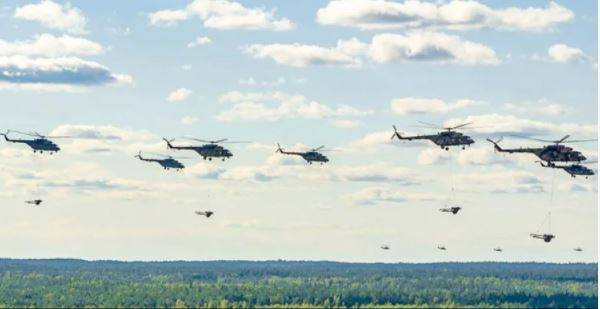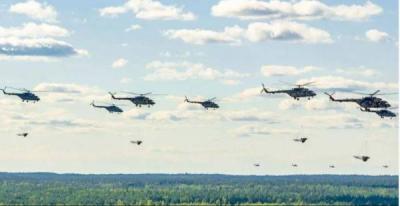As tensions rise on the Russian-Ukrainian border with repeated warnings of an imminent Russian attack on Ukraine, experts and observers argue that the situation is more complicated and extends beyond mere border disputes and national sensitivities between Moscow and Kyiv. Analysts suggest that a major international game is currently unfolding in this sensitive part of the world, which has historically been a flashpoint and a line of uneasy contact between Russia and Western countries. They believe this explains the intensity of American and European positions cautioning Moscow against invading Ukrainian territory, which appears to have transformed into a battleground for complex and intertwined reckonings among major international players, and a gateway for Moscow's attempts to reclaim its sphere of influence in its historic Soviet and Tsarist backyard.
"The Issue is Bigger than Ukraine"
Roland Bejamov, a Russian political analyst speaking to Sky News Arabia, stated, "Of course, the issue is bigger than Ukraine; it concerns restoring Russia's role as a pivotal European state and a great power that has regained its strength and status, no longer weak as it was in the early 1990s." Bejamov continued, "Russia now feels threatened and targeted after five waves of NATO expansion eastward, which directly and imminently threatens Russia. Therefore, it seeks written guarantees from NATO and Washington to halt this expansion and to return matters to how they were in 1997, at the signing of the document regulating relations between Russia and NATO."
The Russian expert mentioned that NATO has repeatedly violated this agreement, emphasizing that "the situation has changed, and Moscow wants guarantees for its reapplication." Bejamov explained that Russia is not coveting the three Baltic republics, which have become independent states within NATO, but instead desires Ukraine as a neutral and friendly neighboring state, which is already a sister nation with cultural, linguistic, and historical ties, and numerous endless common interests.
"A Negative Western Role"
He added, "European nations and America are flooding Ukraine with arms and inciting it to play a negative and hostile role towards its neighbor Russia, while fueling extreme nationalist sentiments against Russians in general and Russian descendants in Ukraine specifically. This amounts to playing with fire and provoking Moscow, violating the principle of security for all." He asserted, "Ukraine should not join NATO, and the alliance should not seek to include it as this poses a direct threat to Russia, which Moscow will reject and oppose."
"Changing the Rules of the Game"
Writer and researcher Jamal Ariz stated in an interview with Sky News Arabia, "It seems that Moscow is working to change the rules of the game and engagement, which have prevailed for almost three decades following the collapse of the Soviet Union at the beginning of the '90s." He added, "Through this crisis, it attempts to restore the remnants of its prestige and influence in its traditional spheres of influence and vital areas, particularly in Eastern European countries adjacent to it, especially Ukraine, which appears to be the last bastion that Russia seeks to prevent from falling."
According to Ariz, this means "preventing Ukraine from joining NATO, unlike Poland, Bulgaria, Romania, and other socialist republics that were once part of the sphere of influence of Russia's predecessor, the former Soviet Union." He further noted, "We are facing a complex scenario with all possibilities and scenarios open, as Moscow talks about Atlantic expansion, while Washington and its allied capitals discuss a counter Russian expansion aimed at restoring Russian control over states and republics that were either part of the Soviet Union, like Ukraine, or were part of it under the Warsaw Pact, like Poland or Romania."
Paper Agreements
In 1997, an agreement was signed between Russia and NATO to regulate relations between the two parties through building trust, but this agreement was political and non-binding. NATO then pledged to undertake defensive tasks instead of permanently stationing large combat forces in former Warsaw Pact member states; however, the agreement remained just a piece of paper, with each side accusing the other of violating it.
NATO quickly began steps to incorporate three countries from the former Warsaw Pact, namely Hungary, the Czech Republic, and Poland, fully accomplishing this by 1999. In 2004, NATO incorporated Bulgaria, Romania, Slovakia, and Slovenia—countries that had also previously been part of the Warsaw Pact under the leadership of the former Soviet Union. This included three Baltic republics: Lithuania, Latvia, and Estonia, which were former Soviet republics. NATO continued to add countries in Eastern Europe until 2017 when Montenegro joined, provoking Moscow's anger at the time.




